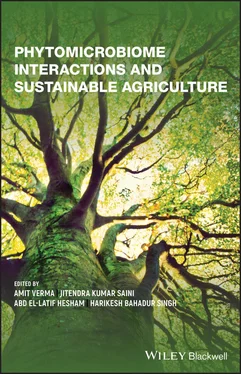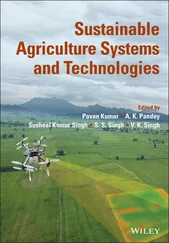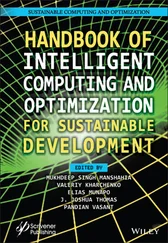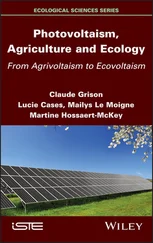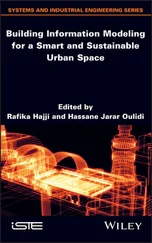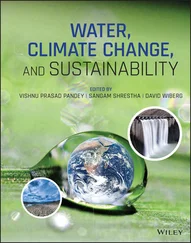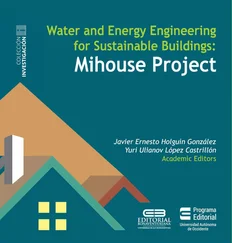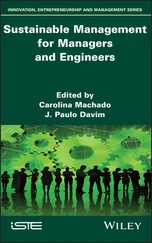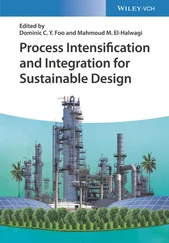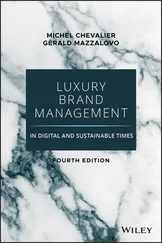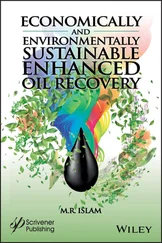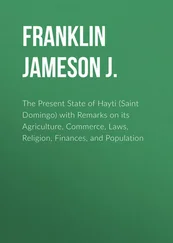Neha TrivediIndian Agricultural Research Institute New Delhi India
Amit VermaS.D. Agricultural University Palanpur Gujarat India
Madan L. VermaDepartment of Biotechnology, Indian Institute of Information Technology Una Himachal Pradesh India
Shulbhi VermaS.D. Agricultural University Palanpur Gujarat India
Meghmala WaghmodePDEA’s Annasaheb Magar Mahavidyalaya Pune Maharashtra India
The microorganisms are of utmost importance to the survival of plants, animals, and humans. Microorganisms interact with their hosts in both positive and negative manners. Therefore, the microorganisms and the technologies based on the microbial processes find many useful applications in the sustainable development of environment, energy, health, and agriculture. The improvements in crop productivity and management of plant diseases require a good understanding of the interactions between microorganisms with different parts of the plants. The plant–microbiome interaction denotes the genome of all the microorganisms, including bacteria, viruses, and fungi, living in and on various parts of plants. In recent times, significant technological progress has been made to improve our understanding of the plant‐microbiome or phytomicrobiome interactions. In order to make agriculture sustainable, it is indeed necessary to learn about various concepts and advances in this field.
This book includes a discussion on some basic concepts, including rhizosphere and phyllospheremicrobiome, analysis of root exudates, role of phytomicrobiome in biotic and abiotic stress management, etc. The book also covers advanced information about metagenomics and proteomics studies in relation to plant microbial community analysis. Modern sustainable practices, including rhizosphere engineering, have also been touched upon.
After numerous deliberations, we came up with the idea to explore the possibility of developing a book on phytomicrobiome interactions and sustainable agriculture. We had in our mind to develop a book that will be beneficial for teachers and students, as well as researchers. Therefore, we invited a variety of researchers and convinced them to contribute the chapters for this book.
We are thankful to our family, friends, students, teachers, and mentors who acted as a source of inspiration to us. At this point we must appreciate the kind gesture of the entire Wiley team, especially Rebecca Ralf (Commissioning Editor), Athira Menon (Project Editor), and Kerry Powell (Managing Editor) who gave us support and showed trust in our capabilities. They generously extended the book timelines in the hard times of the COVID‐19 pandemic and kept supporting us continuously, and as a result, we were able to complete this book in its present form.
This has been our maiden effort to produce a book on phytomicrobiome interactions for the sustainable development of agriculture to help students, teachers, and researchers. We hope that we will get support from the readers of the book. We are always open for criticism, suggestions, and recommendations that can help us to explore other aspects of phytomicrobiome interactions for improving crop productivity.
We dedicate this book to all the persons who are directly or indirectly serving the people affected by COVID‐19.
Amit Verma
Jitendra Kumar Saini
Abd El‐Latif Hesham
Harikesh Bahadur Singh
India, July 2020
Dr. Amit Vermais currently working as Assistant Professor in the Department of Biochemistry, S D Agricultural University, India. He worked under Dr. D.N. Kamra, National Professor, ICAR, India as Research Associate in the Department of Animal Nutrition, IVRI, Bareilly India and studied different aspects of Rumen enzymology. He received his doctorate from G. B. Pant University of Agriculture and Technology, Pantnagar, and investigated the different industrial applications of the Keratinase enzyme. He was awarded with the University Merit Scholarship and CSIR‐JRF, CSIR, India during his doctorate. He qualified for examinations, such as GATE, ICMR JRF, ICAR SRF and ASRB NET. He has keen interest in the field of microbial biotechnology and plant–microbe interactions. His current work is focused on the rhizosphere metabolite investigation of arid plants and phytomicrobiome composition of castor crops under biotic stress. He is a member of many national and international professional bodies. He has written more than 25 research and review articles in reputed peer‐reviewed journals along with 3 books, 15 book chapters, and more than 15 conference proceedings. He also received a Young Scientist Award from the VIRA foundation, India. He also serves as regular reviewer for international reputed journals with high‐impact factors such as (i) Scientific Reports (Impact factor 4.122); (ii) Frontiers in Microbiology (Impact factor 4.019); (iii) Frontiers in Plant Science (Impact factor 3.678); (iv) PLOS ONE (Impact factor 2.77); (v) Protoplasma (Impact factor 2.8).
Dr. Jitendra Kumar Sainireceived his BSc (Industrial Microbiology) and MSc (Microbiology) degrees from Gurukula Kangri University, Haridwar. He obtained his PhD in Microbiology from Gobind Ballabh Pant University of Agriculture and Technology, Pantnagar in 2010 after which he worked as a postdoctoral associate at GADVASU, Ludhiana in a World Bank–funded NAIP project on Rumen microbiology. Later he joined the DBT‐IOC Centre for Advanced Bioenergy Research, Indian Oil Corporation Ltd., Research and Development Centre, Faridabad as a scientific officer, where he led a team on enzyme development for advanced biofuels. Dr. Saini's work on cellulosic bioethanol production employing thermotolerant yeast won the best poster award at the “International Conference on Emerging Trends in Biotechnology‐2014” held at JNU, New Delhi. He joined the Department of Microbiology, Central University of Haryana, Mahendergarh, in 2016 as an Assistant Professor. His current research focuses on enzyme and microbial technologies for sustainable development of energy and environment. Dr. Saini is a recipient of the Early Carrier Research grant from the Science and Engineering Research Board, Department of Science and Technology, Government of India, and a twinning grant from the Department of Biotechnology, Government of India. He is currently supervising two doctoral and 4 postgrad dissertation students, and has supervised 11 postgrad dissertations in the past, besides co‐supervising a postdoc. He has filed one US patent, is an author of 23 articles, and is an active reviewer for many reputed journals in biofuel and bioenergy research. Dr. Saini conducted a one‐week Global Initiative of Academic Networks course on “Integrated Lignocellulosic Biorefineries for Sustainable Development.” Recently, he organized an International Conference AMI‐2019 entitled “Microbial Technologies in Sustainable Development of Energy, Environment, Agriculture & Health” as an organizing secretary. He is the review editor for the journal, Frontiers in Energy Research . Dr. Saini is a life member of the Association of Microbiologists of India (AMI) and the Asian Federation of Biotechnology (AFOB).
Abd El‐Latif Heshamis the Professor of Microbial Genetics and Environmental Meta‐Genome Biotechnology, Genetics Department, Faculty of Agriculture, Beni‐Suef University, Egypt. He also served as the Professor of Microbial Genetics and Environmental Meta‐Genome Biotechnology in the Genetics Department, Faculty of Agriculture, Assiut University, Egypt. He graduated and got his M.Sc. from the Genetics Department, Faculty of Agriculture, Assiut University, Egypt, and his PhD degree from the Chinese Academy of Sciences in Microbial Genetics and Environmental Meta‐Genome Biotechnology. He has been awarded postdoctoral studies from CAS‐TWAS. He is an expert in microbial genetics and biotechnology, biodegradation, bioremediation and phytoremediation, microbial community structure, soil microbiology and enzyme activities, biological control, antimicrobial activates, biofertilizer, biofuels, and environmental meta‐genome biotechnology. He has authored more than 80 peer‐reviewed publications in reputed Thomson Reuters high‐impact factor journals and one book and seven book chapters in internationally reputed publishers like Elsevier, Springer‐Nature, Taylor & Francis, and John Wiley & Sons. He is a key person in many national and international research projects related to field of microbial genetics and applied biotechnology. He has been a scientific and organizing committee member and invited speaker in various international conferences. He is also a recipient of several prestigious national and international awards including most recently, being named a member of the Egyptian National Biotechnology Network of Expertise (NBNE) and Academy of Scientific Research & Technology (ASRT), and has been appointed as the Country Representative for Egypt and the Arab Counties by the International Biodeterioration & Biodegradation Society (IBBS) UK, which belongs to the Federation of European Microbiological Societies (FEMS). He is an associate editor and editorial board member for journals, such as (i) Scientific Reports , (ii) Frontiers in Microbiology , (iii) Current Bioinformatics , (iv) PeerJ , (v) All Life Journal , (vi) International Journal of Agriculture & Biology , (vii) Journal of Environmental Biology , and (viii) Biocatalysis and Agricultural Biotechnology .
Читать дальше
